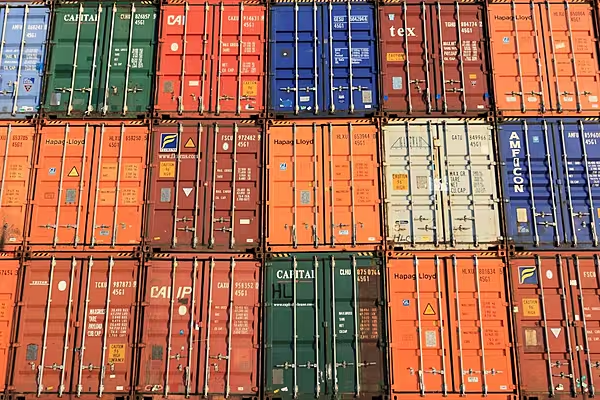Global container shipping rates have surged to records on a spike in restocking demand in the United States and Europe, container scarcity at export hubs, and changes in freight flows because of the coronavirus pandemic, shipping sources said.
The Freightos Baltic Global Container Index (FBX), a weighted average of 12 major global container routes, rose to $2,359 per forty-foot equivalent (FEU) container this week, the highest on record and up 30% since 1 July.
"The spike is driven by very high demand for container freight since July, driven by post-lockdown restocking, limited air-freight capacity, incremental demand for stay-home goods and PPE (personal protective equipment), and a severe shortage of containers," said Hua Joo Tan, container shipping market analyst at Liner Research Services.
The cost to ship a container from China to the US East Coast, a key global retail market, topped $4,750 this week, up 42% since July and a new record, according to Freightos data in Refinitiv Eikon.
The China to US West Coast rate is up nearly 50% since 1 July, to $3,878 per container.
'Strongest Demand Surge'
"The transpacific route from Asia to the US has seen the strongest demand surge, with volumes growing by between 10% to 20% more than last year, but we are seeing the high demand spill over into all trade-lanes currently," said Tan, adding that demand is projected to stay firm until the first quarter of 2021.
The Harpex Shipping Index, which tracks container ship charter rates, has more than doubled since July to 947 points currently, its highest since September 2008.
Aside from the restocking swell, container rates have also climbed on a surge in orders from firms that usually ship goods in the belly of passenger jets but now must use container vessels while much of the global air fleet remains grounded.
An uneven worldwide distribution of containers caused by disruptions to logistics channels because of coronavirus lockdowns has also boosted rates.
Evolving Pandemic Situation
While container costs are expected to stay high through the end of 2020, the evolving pandemic situation in major economies may abruptly change the trajectory of rates next year.
"Even though the carriers are claiming to be booked solid all the way to Chinese New Year, we should not forget just how quickly all the US and European importers cancelled already existing purchasing orders with the factories back in March/April," said Lars Jensen, chief executive at SeaIntelligence Consulting.
If the pandemic worsens and leads to stricter lockdowns and deeper recessions, consumers would likely cut spending as unemployment rises, reducing container demand, according to Jensen.
Container demand could also drop if the pandemic is quickly brought under control and consumers start spending more on services such as travel and less on goods, said Jensen.
On the other hand, if most economies continue to teeter between opening up and closing down, container rates would remain supported as services spending would stay depressed and goods demand would stay strong, he said.














